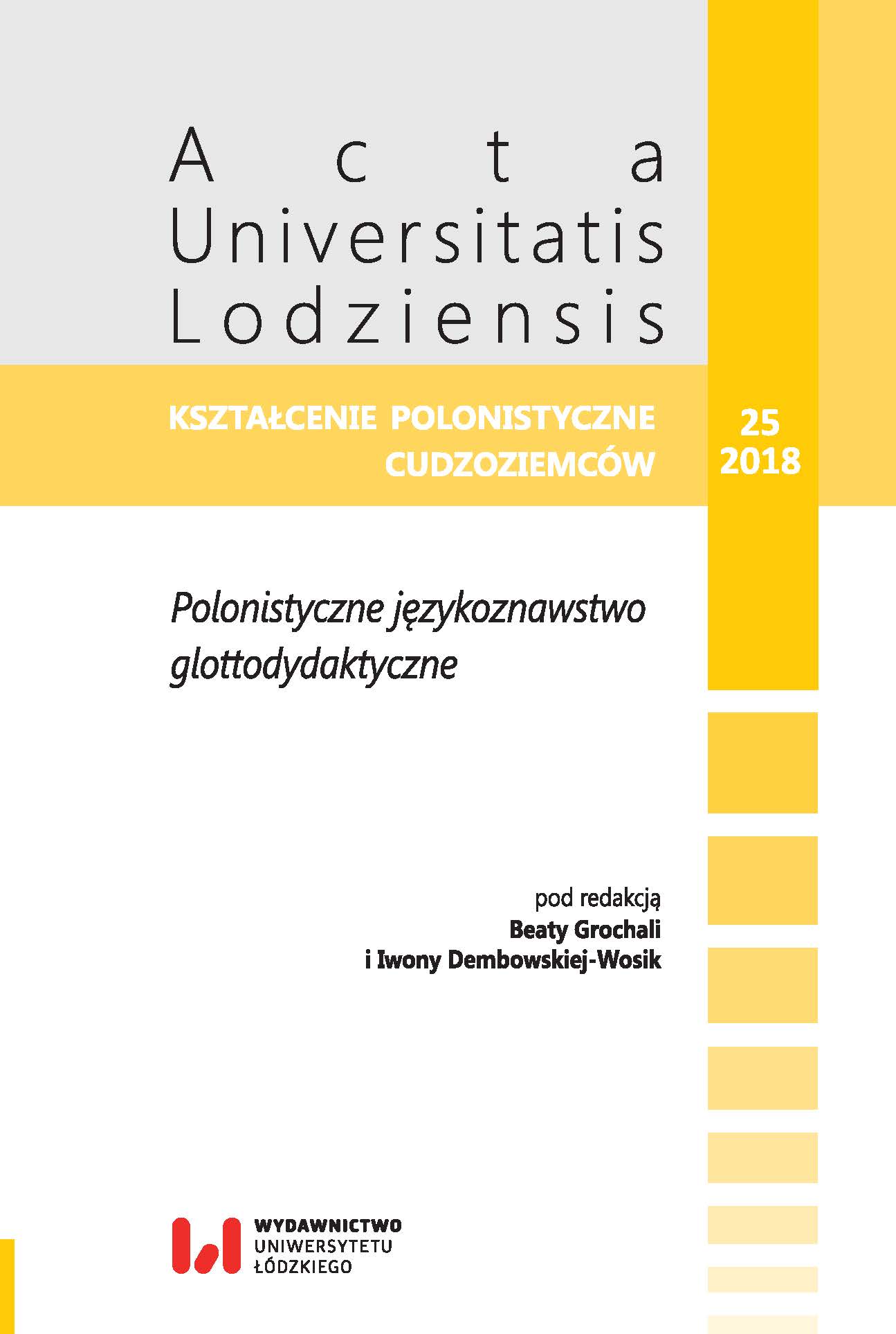Aspect of Polish verbs as a problem of translation and a challenge for learners and teachers of Polish as a foreign language
DOI:
https://doi.org/10.18778/0860-6587.25.08Keywords:
Polish grammar, language teaching, translation, aspectual pair, semantics, cognitive approachAbstract
The article concerns the issue of Slavonic aspect of Polish verb in the contrastive approach. The base for the contrastive analysis is Polish-German and German-Polish translation. Empirical research could finally be conducted in a complete and systematic way thanks to the new research perspective opened by applying cognitive semantics methods to the relevant issue. Here, the theories of Renata Grzegorczykowa and Volkmar Lehmann (concerning the primary or secondary cognitive character of each aspectual partner) are of particular importance. Conclusions drawn from the analysis focus on the following issues: the repertoire of functional exponents of aspect in German, the relevance of the category in Polish, the true importance of contextual and cognitive indicators of perfectiveness or imperfectiveness of verbs. The results are relevant from the perspective of translators and translation, but they can also be applied to the field of glottodidactics. They can provide a solid base for reopening the discussion on the ways of teaching aspect to students from non-Slavic countries and presenting the relevant issue in course books and other teaching materials.
References
Cockiewicz W., 2007, Na peryferiach aspektu, „LingVaria”, 2 (4), s. 9–25.
Google Scholar
Grzegorczykowa R., 1997, Nowe spojrzenie na kategorię aspektu w perspektywie semantyki kognitywnej, w: R. Grzegorczykowa, Z. Zaron (red.), Semantyczna struktura słownictwa i wypowiedzi, Warszawa, s. 25–38.
Google Scholar
Lehmann V., 1988, Der russische Aspekt und die lexikalische Bedeutung des Verbs, „Zeitschrift für slavische Philologie”, nr 48, s. 170–181.
Google Scholar
Lehmann V., 1993, Die russischen Aspekte als Gestufte Kategorien (Ein Beispiel für die Bedeutung der kognitiven Linguistik in der slavistischen Sprachwissenschaft), „Die Welt der Slaven”, 38/2, s. 265–297.
Google Scholar
Lehmann V., 2010, Der slavische Aspekt im Licht der kognitiven Linguistik, w: T. Anstatt, B. Norman (red.), Die slavischen Sprachen im Licht der kognitiven Linguistik, Wiesbaden, s. 77–99.
Google Scholar
Odija D., 2003, Tartak, Wołowiec.
Google Scholar
Odija D, 2006, Das Sägewerk, tłum. M. Pollack, Wien.
Google Scholar
Stawnicka J., 2007, Aspekt – iteratywność – określniki kwantyfikacyjne: na materiale form czasu przeszłego w języku polskim, Katowice.
Google Scholar
Zeh J., 2003, Adler und Engel, München.
Google Scholar
Zeh J., 2004, Orły i anioły, tłum. S. Lisiecka, Warszawa.
Google Scholar
Downloads
Published
How to Cite
Issue
Section
License

This work is licensed under a Creative Commons Attribution-NonCommercial-NoDerivatives 4.0 International License.










